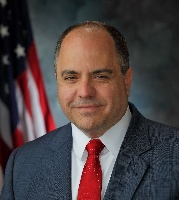Dalton White Collar Crime Lawyer, New York
Sponsored Law Firm
-
 x
x

Click For More Info:
-
The Law Offices of Richard L. Cooper, P.A.
848 Brickell Avenue Suite 800 Miami, FL 33131» view mapDWI/DUI, Drug Trafficking, Felony Nationally Ranked Top 40 Under 40
With Richard L. Cooper you can expect a trusted confidant who will work diligently to fully understand your case and determine a road map to help you regain control of your life.
800-756-2781
Not enough matches for Dalton White Collar Crime lawyer.
Below are all Dalton Criminal lawyers.
Raymond Paul Sciarrino
✓ VERIFIEDCriminal, Real Estate, Personal Injury, Traffic, Estate
Licensed: 22 Years
Sciarrino & Sciarrino, P.C. is a criminal law firm serving Rochester and the surrounding areas of Livingston County and Wyoming County. For more than ... (more)
Scott David Woodruff
White Collar Crime, DUI-DWI, Criminal
Status: In Good Standing Licensed: 14 Years
John Albert Cappellini
White Collar Crime, Estate Planning, Bankruptcy, Contract, Natural Resources
Status: In Good Standing Licensed: 27 Years
John C. Putney
Real Estate, Traffic, Estate, Divorce & Family Law, Criminal
Status: In Good Standing Licensed: 43 Years
Raymond Louis Sciarrino
Accident & Injury, Personal Injury, Criminal, Estate, Real Estate
Status: In Good Standing
Bronwyn Elaine Enders
Social Security, Divorce & Family Law, Criminal
Status: In Good Standing Licensed: 17 Years

 Richard L. Cooper Miami, FL
Richard L. Cooper Miami, FL AboutMiami Attorney at Law
AboutMiami Attorney at Law ServicesCriminal Defense
ServicesCriminal Defense

